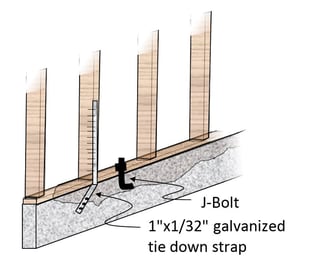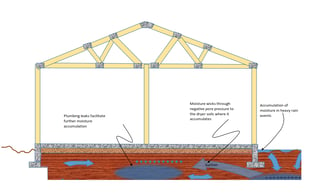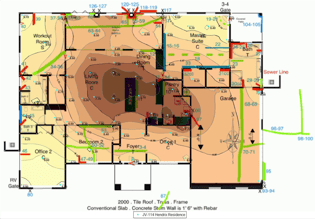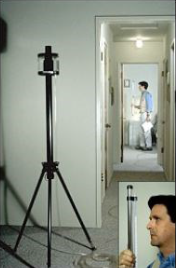 Here are 10 things Homeowners Need to Know in Hiring a Foundation Repair Inspector
Here are 10 things Homeowners Need to Know in Hiring a Foundation Repair Inspector
Foundation repair for homeowners can be a frightening and intimidating thing. It is impossible for homeowners to become experts in all the things it takes to understand in foundation performance. In addition the foundation repair industry in many ways is fraught with errors and inconsistency and conflicts of interest inherent with the homeowner’s well-being.
The foundation repair industry across North America is a $50 billion year industry and I estimate that 50% of it is misdiagnosed, wasting the effectiveness of it for the homeowners. To that end I have compiled this list of questions designed to assist the homeowner in cutting through the maze of information about what a homeowner should expect from a foundation inspection.
- Is the person doing the inspection paid on a commission basis or not? If the person being paid to do the inspection, analyze the data and make recommendations is being paid for what later will be sold to the homeowner, then that sets up a huge conflict of interest right from the start. In addition it is well documented that salespeople have great talents, but generally do not have the attention to detail required for detailed observations and analysis in comparison to say accountants or engineers.
- Has the individuals or firm doing investigation received training from more than one source? If the only source of training available to the company doing the investigation is a single source supplier, then the recommendations are going to be limited to the products offered by that supplier. Has any of the individuals doing the analysis received training certification from industry sources such as independent foundation associations or organizations? If a foundation investigating company receives training only from a supplier that supplies a solution to one problem it creates a skewed perception that all problems fit into their solution. Sort of like putting round pegs into square holes.
- Is the analysis done on the spot? I have polled over 50 engineers and ask them the question: “would you be comfortable in going to a home and coming up with a repair plan on the spot?” Bear in mind that these are professional licensed engineers who are trained to understand these problems better than anyone else. Not one of them said they would feel comfortable doing it.
- Speaking of engineers. Is there any oversight on the observations, analysis, and recommendations by a professional licensed engineer? If there is no engineering oversight how confident can we be that the details of the observations, analysis and recommendations have been vetted thoroughly and objectively?
- If the company doing the inspections offers solutions that they sell to the homeowner, do they offer solutions to different problems with different technologies? So for instance if they offer solutions to settlement or heave for example but not both, then what do you think there interpretation of the problem will be? I can pretty much assure you that it will be toward the product that they offer.
- Are the methods of investigation following any standards set up in the industry? If the investigation procedures do not follow any
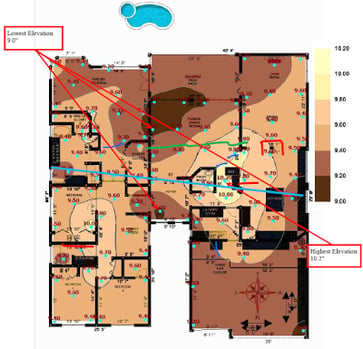 standards set up in the industry how do we know that the methods are effective or even the correct ones at all? Showing up and looking around does not cut the mustard. Even taking a few elevations is inadequate. Investigation methods should follow a standard set up in the industry.
standards set up in the industry how do we know that the methods are effective or even the correct ones at all? Showing up and looking around does not cut the mustard. Even taking a few elevations is inadequate. Investigation methods should follow a standard set up in the industry. - How will the severity of the problem be assessed? Is it the opinion of a sales person being paid on a commission to sell something that day? You can see the conflict with that proposition. Are there any industry accepted consensus standards being used to judge the severity of the problem? If not then the recommendations are purely opinions that carry no credible weight.
- What is the reputation of the company doing the inspections? Simply do your homework with Google, Yelp, BBB, Angie’s list, Rosie Romero, or any other vetted recommendation and reputation service.
- How familiar is the investigator with local conditions? This is more important than you might think. Soils and building practices vary greatly across the United States. If there is not a strong track record with local conditions the probability for errors is high. For example in Arizona we have soil conditions that are completely opposite of most of the rest of the United States. This actually creates a dynamic under most houses that is completely opposite in other areas.
- How well do they communicate their findings? Even if you have the best investigation in the world if they don’t communicate well, then it will be a frustrating and unhelpful experience for you. Do they take the time to help you understand the critical issues and communicate them using visual aids and explaining it in layman’s terms? If not you will be in the end very uncomfortable.


